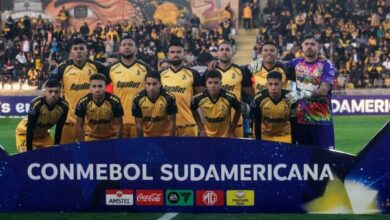The Dark Side of the Qatar World Cup 2022
Controversies have been unleashed around the organization of the next World Cup due to its opacity in the face of different complaints

Beyond the traditional restrictions in Muslim-majority countries, Qatar has been in the eye of activists around the world for allegations of labor exploitation and an attack on freedom of expression. Photo: AS
LatinAmerican Post | Luis Hernández Liborio
Listen to this article
Leer en español: El lado oscuro de la Copa del Mundo de Qatar 2022
The 2022 FIFA World Cup Qatar is just around the corner, the excitement and anticipation of the first World Cup held in the Middle East have been overshadowed by complaints about its organization. Beyond the traditional restrictions in Muslim-majority countries, Qatar has been in the eye of activists around the world for allegations of labor exploitation and an attack on freedom of expression.
Workers, almost slaves
In the Arabian peninsula are several of the richest countries in the world: Saudi Arabia, United Arab Emirates, Oman and Qatar that attract thousands of migrant workers Bangladesh, India and Nepal, mainly, according to Human Rights Watch (HR W) . The problem is that the working conditions in which these people find themselves are deplorable, even comparable to slavery. Qatar has depended on the work of 2 million people in the decade in which the World Cup venues have been built. The death toll in this period amounts to 6,500 workers, the lack of transparency about their deaths has attracted international attention.
Amnesty International has investigated and discovered that the death certificates of workers in the emirate are frequently related to heart problems, it also adds that the way in which the certificates are written makes them imprecise, which raises suspicions. As if that were not enough, those who do not die have to suffer from low wages (compared to what they are promised before migrating), delays in payments, they are restricted to not being able to go beyond the work zones because They depend on their employers to keep their documents in order and, in most cases, they do not renew them. Their passports are withdrawn and they are forced, under threat, to fulfill their contracts, so they cannot leave the country.
Allegations of corruption in Qatar
Since the day Qatar was awarded the World Cup venue, on December 2, 2010, the emirate has been accused of being corrupt. The case came to be deeply investigated, especially amid FIFA's corruption scandals that included former FIFA president Joseph Blatter, former UEFA president Michel Platini and even the name of former French president Nicolás. Sarkozy.
In terms of human rights, not only the working conditions of migrants have come to light, there have also been recurrent complaints about the treatment of women and the LGBT community. The emirate has tried to change that image, the director of the organizing committee, Nasser Al-Khater, declared a few days ago that the country would be tolerant towards the LGBT community, as long as there were no public displays of affection, according to ESPN. Something that contrasts remarkably with the values of FIFA, however, the country obtained the headquarters despite this and other indications that were known previously. The headquarters was in jeopardy in early 2020 from Qatar's corruption problems and geopolitical problems in the region, which included naval blockades and threats.
You can also read: Why Is The Formula 1 Title So Controversial?
Norway is one of the countries that has spoken out the most against the way the Qatar World Cup is progressing in terms of human rights, hence the two journalists who were detained last November for more than 30 hours without justification. They were on their way to interview Abdulá Ibhais, a former employee of the organizing committee, who has been critical of the emirate and who, according to HRW, has been the victim of an unfair criminal process.
Controversies in other sporting events of global magnitude
Civil society takes advantage of the media exposure that the organizing countries of large-scale sporting events have, such as the Olympic Games and the Soccer World Cup. The list is extensive, but we can recently remember the demonstrations in the main cities before the 2013 Confederations Cup and the 2014 World Cup, both held in Brazil. Demands for better wages and working conditions showed the world that not everything was a party before the event. Russia 2018 was the scene of protests by LGBT activists who were against the way in which the Russian state treats the issue in the country. Despite the scandalous nature of the issues that occur in each event, authorities from the International Olympic Committee (IOC) and in other cases from FIFA avoid commenting on the matter, for this reason, both bodies are often criticized because apparently, they do not give importance to relevant issues within of the securities they support.




